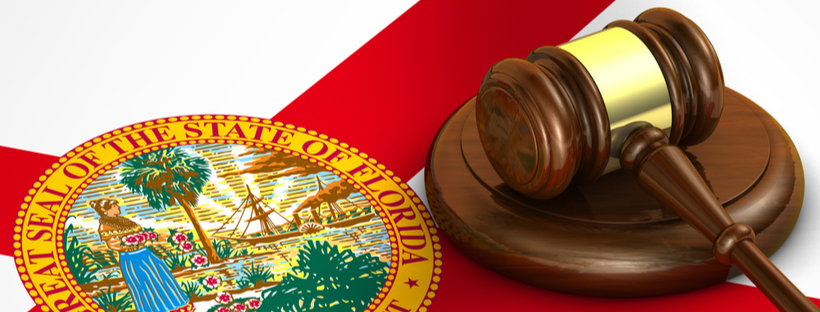Legislative Alert: Florida’s HB 1551 and SB 554 Raise Concerns for Insurance Carriers
Legislative Alert: Florida’s HB 1551 and SB 554 Raise Concerns for Insurance Carriers
It is no secret that insurance rates in the state of Florida have skyrocketed over the past several years. One of the catalysts to the increased rates was Florida’s attorney fee statute, which had the effect of incentivizing lawsuits against carriers, meritorious or not. In 2022, the Florida legislature passed sweeping property insurance reforms aimed at stabilizing the property insurance market, removing entitlement to attorney fees in first party lawsuits. Just two years later, the legislature is set to consider two pieces of legislation aimed at curbing some of those 2022 property insurance reforms. This article addresses those pieces of legislation and the concerns associated with each.
House Bill 1551
HB 1551 has garnered the most attention in recent weeks. This bill aims to specifically revive entitlement to attorney fees for insureds, if they are the “prevailing party.” An insured is the prevailing party where they obtain a “judgment” greater than the “highest written, good faith settlement offer previously tendered by the insurer.” Conversely, the insurer is the prevailing party where the insured does not obtain a judgment greater than the carrier’s last demand.
Interestingly, “judgment” is defined as including reasonable attorney fees, taxable costs, and prejudgment interest that was incurred as of the date of the carrier’s highest demand. This definition is fraught with issues. First, it is silent as to whether it applies to pre-suit offers made by carriers where there is no entitlement to attorney fees and costs, but where an insured may be represented by an attorney. Second, it seemingly forces carriers to consider prejudgment interest when making offers on claims where interest is not due (i.e., denied claims). Third, with litigated claims, there is no method by which a carrier may obtain the insured’s “reasonable attorney fees” or “taxable costs.” Of course, the carrier could ask the insured’s attorney, but the bill omits any obligation to provide that information. Finally, HB 1551 seemingly expects carriers to determine the reasonableness of an insured’s attorney fees when making an offer. Typically, the reasonableness of attorney fees is determined by the court, which makes it impossible for a carrier to properly determine the amount for their good faith offer.
The practical effect of how “judgment” is defined by HB 1551 leaves carriers with two options when considering how to make an offer: (1) make a nominal offer and hope for a defense verdict at trial, or (2) give it your best guess and aim high. No doubt, in situations where a carrier prevails at trial, there is little doubt that an insured would attack the offer as not being made in “good faith.”
When dealing with a statute as convoluted as HB 1551 aims to be, carriers typically attempt to insulate themselves from the risk of paying exorbitant attorney fees by filing a proposal for settlement (PFS), thereby shifting the risk of attorney fees to the insured in the event of a defense verdict. It is an imperfect system, but it works most of the time. Even with the benefit of the PFS statute, carriers often found themselves compelled to settle claims, rather than risk a Plaintiff’s verdict that could defeat a carrier’s PFS, subjecting them to an excessive claim for attorney fees and costs. Despite the long-tenured application of the PFS statute, though, HB 1551 would remove applicability of the PFS statute from any first party lawsuit. The effect would leave carriers and courts to wrangle with the impractical and ambiguous definitions of “judgment” and “good faith” to determine who is entitled to attorney fees and when.
Senate Bill 554
Florida Senate Bill 554 (SB 554) also aims to curb recent property insurance reforms. Like HB 1551, it aims to revive some form of entitlement to attorney fees for insureds. It also attempts to impose several more requirements upon carriers. If passed, it would take effect July 1, 2025. Carriers should note the following key points that will affect them if passed:
- Increased reporting requirements for insurers (financial relationships with other entities, executive compensation, etc.), which could be used to evaluate rate increases;
- Increased documentation for revisions to written loss estimates, to include detailed explanations and identities of individuals modifying estimates;
- Amends acceptable responses to a notice of intent for denied claims;
- Requires parties participate in mandatory mediation before suit may be filed on denied claims (costs shared);
- Permits recovery of attorney fees for an insured on a percentage basis (presuit demand vs. judgment).
There are some confusing exceptions to the attorney fee provision, which reads as if it renders the provision inapplicable where: (1) the insurer fails to timely respond to a claim or participate in mediation, (2) the insured’s demand is deemed reasonable by the court, regardless of outcome, and (3) the court finds evidence of bad faith or litigation abuse.
All of these exceptions seem impractical in application. First, SB 554 reads as if the carrier could avoid the issue of entitlement to fees by accidentally failing to timely respond to a claim or refusing mediation. That does not seem to be the intent behind the bill. The next exception seems to provide a favorable loophole to insureds by allowing a judge to determine, even in the event of a defense verdict, that the insured’s demand was “reasonable,” thus entitling the insured to their attorney fees. Such an exception could have the effect of the insured always being entitled to their attorney fees.
SB 554 is also silent as to entitlement to fees in the event any of the exceptions do apply. Is there still entitlement? How is that be calculated? What statute would then entitle the insured to fees, if any? Lastly, and most alarming, is the bill’s entanglement with “bad faith.” It seemingly permits the court to determine, for the first time in a first-party breach of contract case, whether the carrier engaged in “bad faith.” SB 554’s expansion into bad faith is contrary to current bad faith law in Florida. Because the bill is silent whether a court’s findings would be admissible in a first party bad faith action, it could have far reaching impacts in actual first party bad faith cases. Permitting consideration of bad faith in a breach action could upend well-established bad faith law in Florida, and risk increasing litigation of bad faith matters.
If either bill is passed, they could have similar impacts on the insurance market as their repealed counterpart did—incentivizing litigation, whether meritorious or not. Such impacts could further destabilize Florida’s insurance market, leading to increased insurance costs for all homeowners, and risk the mass exodus of more carriers from the state of Florida. Additionally, there would likely be significant litigation over the interpretation and practical application of the bills, given the issues addressed above.










